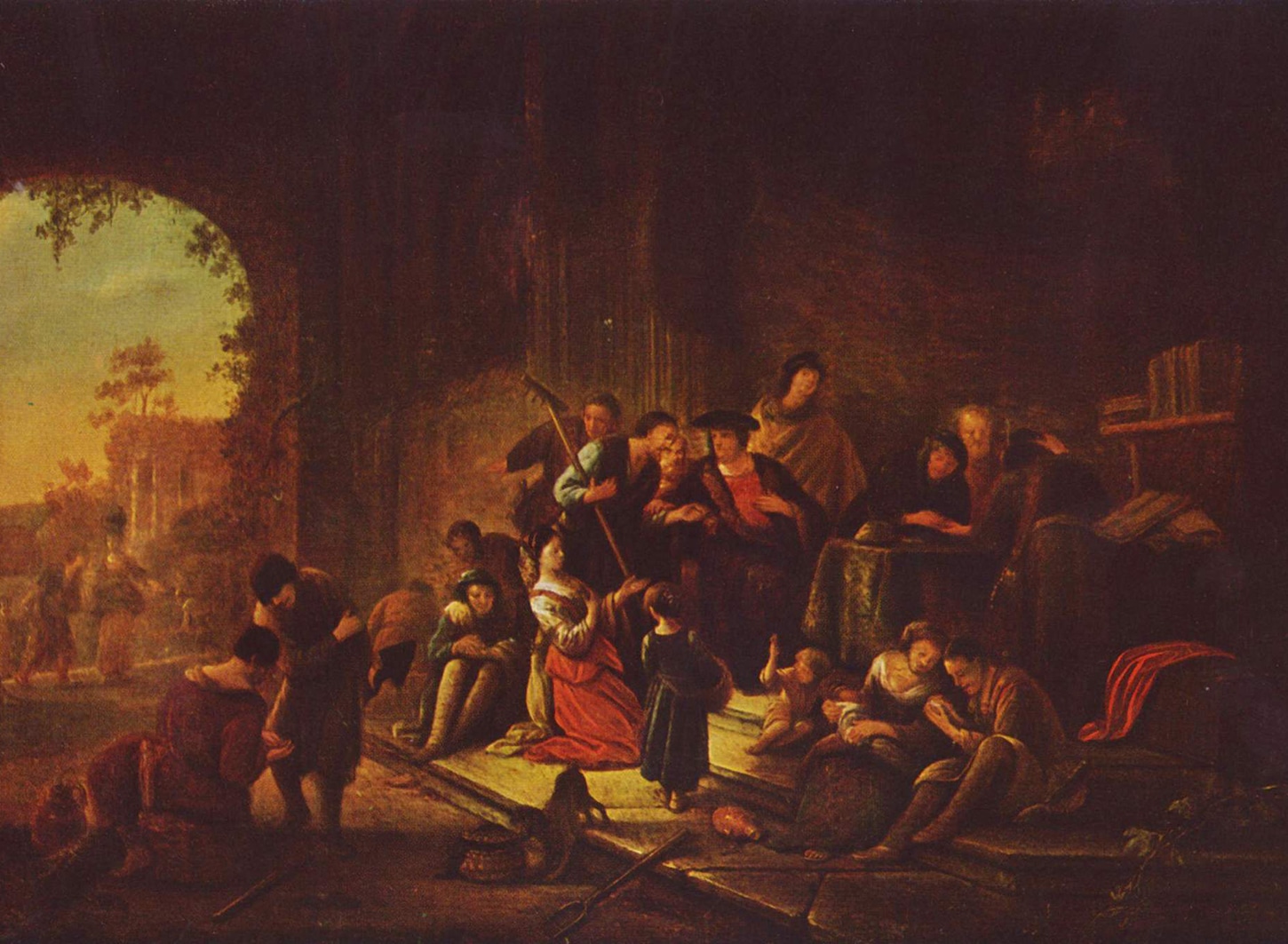This parable from Matthew about the landowner and his laborers, a story about equal pay for unequal work, teaches us something about the inscrutable justice of God and the strange calculations of his mercy. It unsettles our ideas of grace, in a good way.
Grace is a promise, yes; a contract binding the Almighty, no. God has mercy on whomever he wills and mysteriously hardens the hearts of whomever he wills (cf. Rom 9:18). No broken and contrite heart will he despise (cf. Ps 51:17). To Judas, however, he said it would have been better had he never been born (cf. Mt 26:24). Yet still, not just the righteous, but sinners too are welcomed into the kingdom (cf. Mt 9:13).
It is indeed an unpredictable thing, the grace of God. Indeed, the last will be first and the first will be last (cf. Mt 20:16). You can’t entirely make sense of it; one is always kept guessing — again, in a good way. As poet Charles Péguy said, “This, my child, is how the books are kept with Jesus.” All one can do is wonder and love and praise and beg for that more beautiful wisdom, what the world has long thought foolish but in truth is salvation (cf. 1 Cor 1:25-29).
The vineyard is an image of Israel (cf. Is 5:7), but Christ welcomes into the family of God any who will hear his voice (cf. Mk 3:31-35). John tells the story of Nicodemus (cf. Jn 3:1-21) and the story of the Samaritan woman (cf. Jn 4:4-30), one after the other, for a reason. Nicodemus, the insider par excellence, fails to recognize the Christ; the Samaritan woman, however — the consummate outsider — she is changed. “Could he possibly be the Messiah?” she preaches with raw evangelical excitement (Jn 4:29). One has opened herself to Christ, another hasn’t yet; the last are going first.
| September 24 – 25th Sunday in Ordinary Time |
|---|
|
Is 55:6-9 Ps 145:2-3, 8-9, 17-18 Phil 1:20-24, 27 Mt 20:1-16 |
Outsiders are welcomed by their encounter with Jesus, by faith: this makes the Church. She is the “wild olive shoot” grafted into Israel (Rom 11:17). Once estranged, we gentiles, “strangers to the covenants of promise, without hope,” now are those born in Christ in the Church; now we are part of God’s promise to Abraham, now to be counted among the stars of the sky (Eph 2:12; cf. Gn 15:5).
But how? How do Israel and the Church belong together? This question vexed many early Christians, Paul most certainly (Rom 9-11). Dante dreamed that the garden of heaven was filled “equally” with those who had come to Christ both before and after his advent (“Paradiso,” 32.37-39). As I said, grace is an unpredictable thing. We don’t have time to get into it. For us, we’ll have to leave it with Von Balthasar who, as far as I’m concerned, said it best: “God is the author of the problem,” he said, “and to him alone belongs its resolution.” They are two chambers of one heart, he said, Israel and the Church. It’s a beautiful mystery. It’s probably best to leave it at that.
The good of being unsettled
But we shouldn’t miss the more immediate point: the good of being unsettled about the grace of God in our own lives. Although we may trust it more than the rising of the sun, we must not presume upon it. Although we can be sure of its reality and power in the sacraments, we must not dare to think we can control it.
But I’m talking about more than just sacraments. I’m talking about the whole of one’s life. For instance, you were born a Catholic, baptized, and educated in Catholic schools: all of that does you precious little if you’ve not fallen in love with Jesus Christ, if you’ve not become an actual disciple. To be a cradle Catholic without faith is only an immense sadness. Those who respond to the living Christ by faith as a “living sacrifice” (Rom 12:1) will come to surprise you — maybe they’re recent converts, scandalous penitents or Protestants down the street — when you see them glorified before you in the kingdom of heaven. All because they responded to the Christ whom you took for granted.
But again, even that will be just another strange gift of grace, for God will have not stopped loving you; he’ll have simply added to the kingdom more sinners and wanderers just like you. Which is why this all leads to praise in the end. Endless praise, like heaven.





